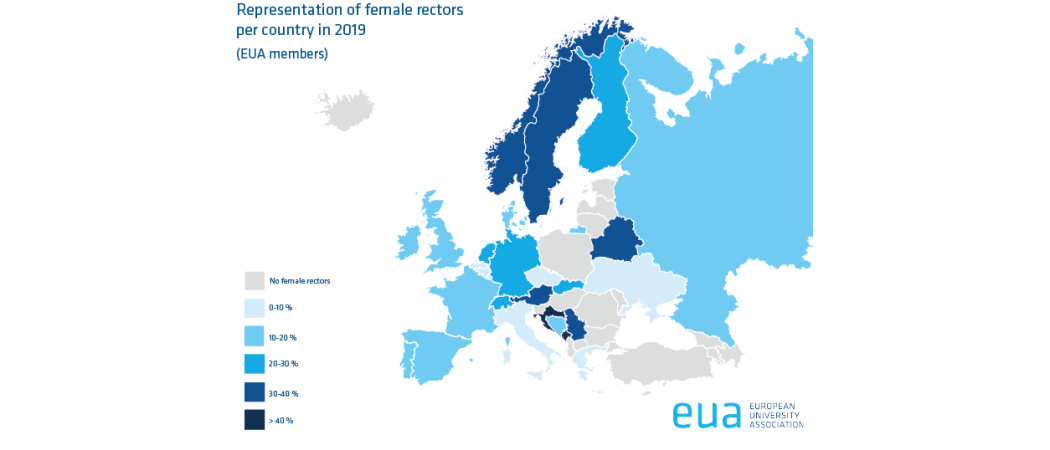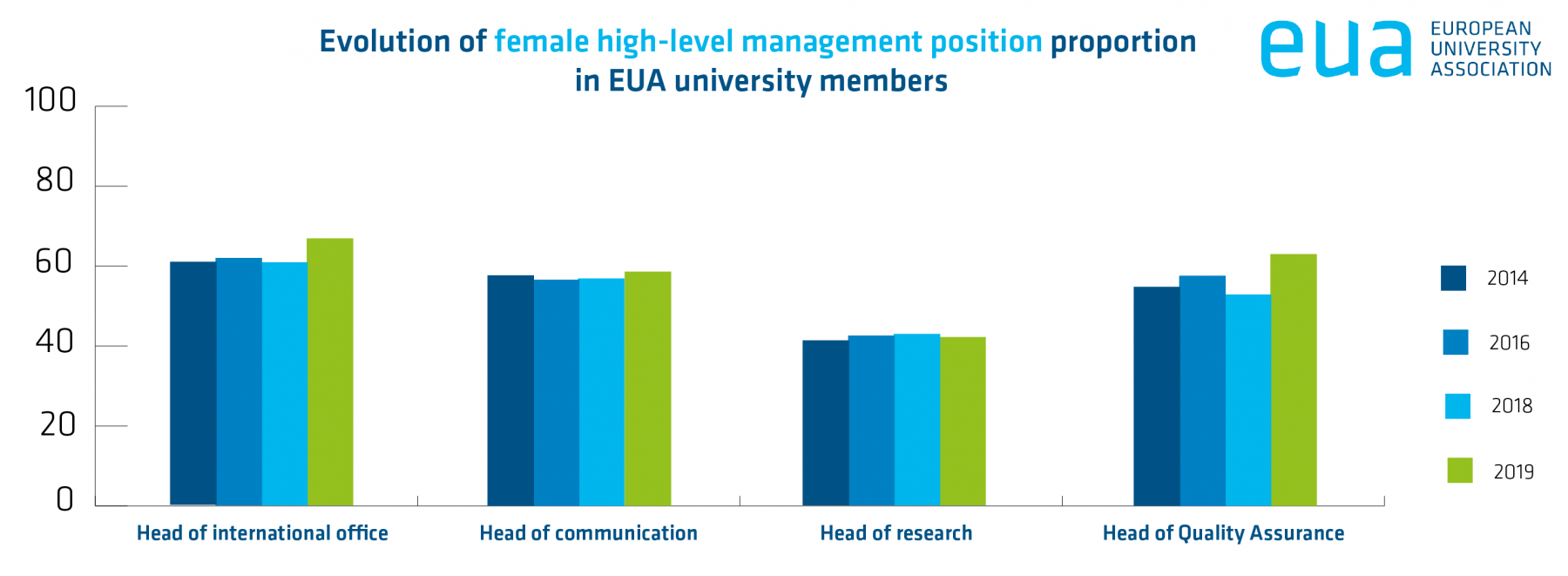
Representation of female rectors per country in 2019 (EUA data
International Women’s Day, 8 March, is a global day to honour women and their achievements in all spheres of life. It is a time to reflect on progress made and ways to further advance gender equality to maximise the potential of female talent. On this occasion, EUA presents its latest data on female leadership in universities.
The present situation of female leaders in universities
Universities are still male-dominated institutions. In 2019, 14% of rectors in 46 countries with EUA members are female, compared to 86% being male. The situation varies across countries as the proportion of female rectors is above the average in 16 countries, and below in eight countries. Notably, 22 countries currently do not have any female rectors.
There is, however, a tendency for more women to become rectors. According to EUA data collected between 2014 and 2019, the number of female rectors has increased by 36%.
The latest figures for female vice-rectors are also somewhat uplifting: In some countries female vice-rectors constitute a majority ranging from 83% to 52% (Latvia, Denmark, Norway). Meanwhile, other countries have gender parity (North Macedonia, Moldova, Cyprus) and, on average, almost 30% of all vice-rector positions are held by women.
Looking back in time, the proportion of female vice-rectors has steadily increased between 2014 and 2019 by 14%.
Despite female rectors and vice-rectors being underrepresented, management positions that do not require the status of “Grade A” researcher - such as heads of administration – demonstrate a tendency towards gender equality, however with variabilities between the types of departments.

The main obstacles to becoming university leaders
While the female proportion in university high-level management positions is becoming more balanced, the top-level institutional positions (rectors/vice-rectors) require progress in parity. The main hindrances in some countries seem to be the achievement of full professorship, which is typically a requirement to pass to the top, and imbedded institutional mindsets that resist change.
This release was first published 7 March 2019 by the European University Association.





 A unique international forum for public research organisations and companies to connect their external engagement with strategic interests around their R&D system.
A unique international forum for public research organisations and companies to connect their external engagement with strategic interests around their R&D system.